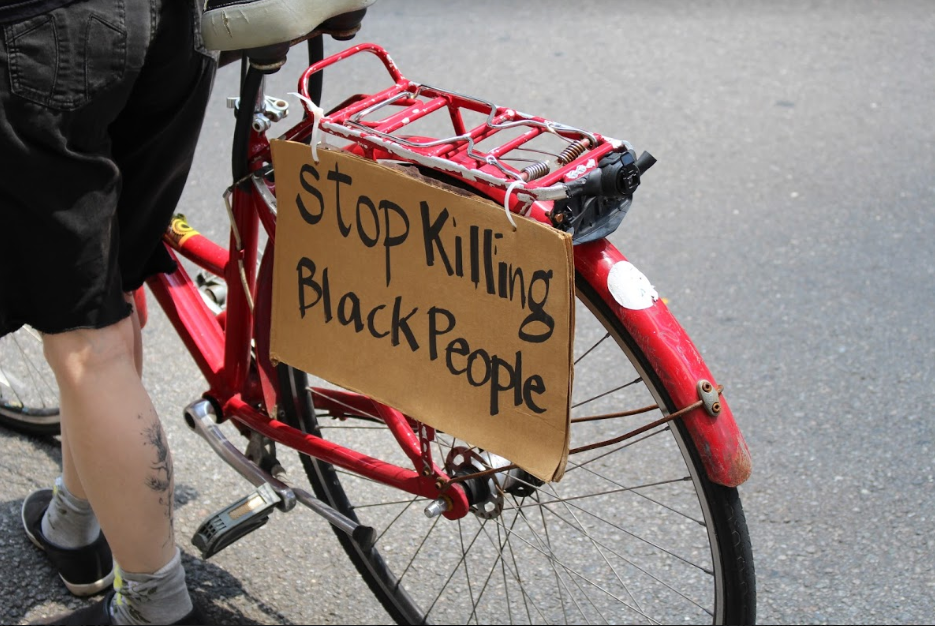Our team is following today's BLM labor strike in downtown Manhattan. Follow along for updates from @samkbloch, @tal_moore, and @triciavuongg thecounter.org/strike-for-bla…
@samkbloch @tal_moore @triciavuongg Protesters gather in front of the Federal Reserve (33 Liberty St). They’re all kneeling for 8 minutes and 46 seconds. #StrikeForBlackLives 

Shannon Swift is chair of the racial justice committee at @grassrootsactNY (GANY), which organized today's action.
Maria Ordoñez is the youngest woman running for New York City Council, in District 7 @MariaOrdonezNYC #StrikeForBlackLives
@MariaOrdonezNYC Jeremy Espinal, a line cook at Chipotle, spoke in front of Trump Tower: "If Chipotle cared about black and brown people it would give its workers hazard pay. It would give its workers sick leave for Covid. It would support us through these times and support our families." 

#StrikeForBlackLives was organized by the SEIU, and supported by other labor unions including the United Farm Workers and United Food and Commercial Workers. Organized labor has long been active in the fight for racial justice, despite its own complicated racist histories. 

Black people represent one in six essential workers. Nationwide, they've been infected by the coronavirus at significant rates, and are more than twice as likely to die from it as other Americans. 

In March, Ruben Mendez lost his job cleaning a first-class lounge at Newark airport. "Black and brown people are at the bottom of society," he said at the protest. "They can't quarantine. They don't have equipment to protect themselves at work." 

Union jobs offer 13 percent higher wages, 18 percent more sick days, and 26 percent more health insurance, according to @EconomicPolicy. The promise of economic security and stability remains appealing to Black Americans, and unions often provide that sense of promise. 

“My hope is that this action not only wins these workers the demands that they raise, but that it also sees them as intersectional humans that actually deserve care and respect and dignity in all aspects of their lives inside and outside of the workplace," one organizer told us. 

Read more about the goals and strategies of today's #StrikeForBlackLives in this story by @samkbloch: thecounter.org/strike-for-bla…
(Thanks to @tal_moore, @triciavuongg, and SEIU for all photos and videos of the event!)
(Thanks to @tal_moore, @triciavuongg, and SEIU for all photos and videos of the event!)
• • •
Missing some Tweet in this thread? You can try to
force a refresh





